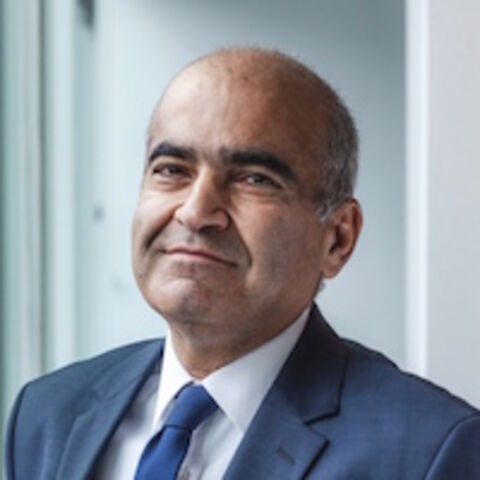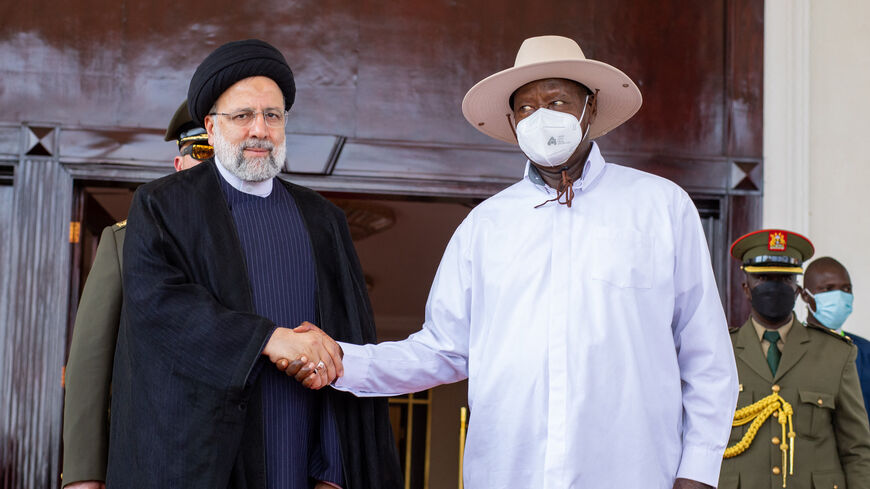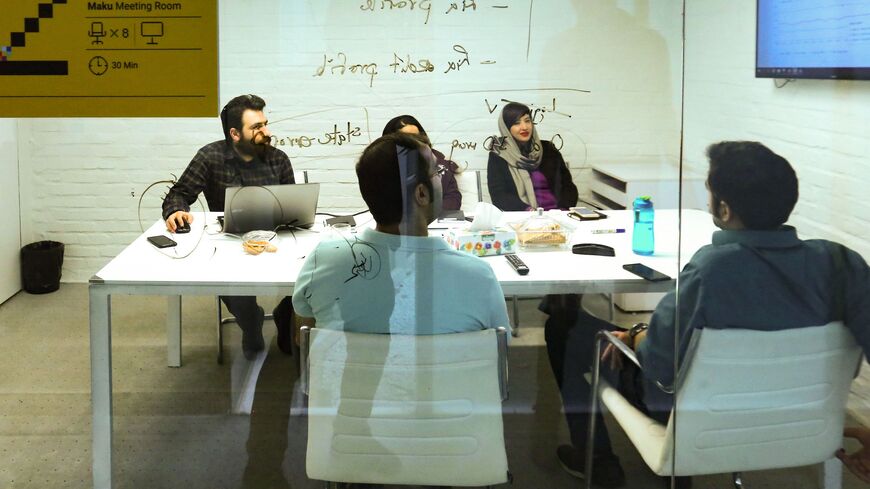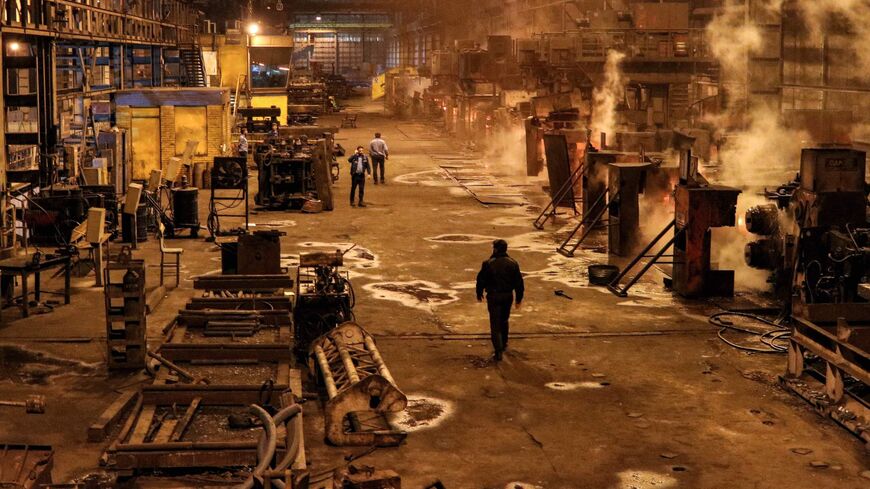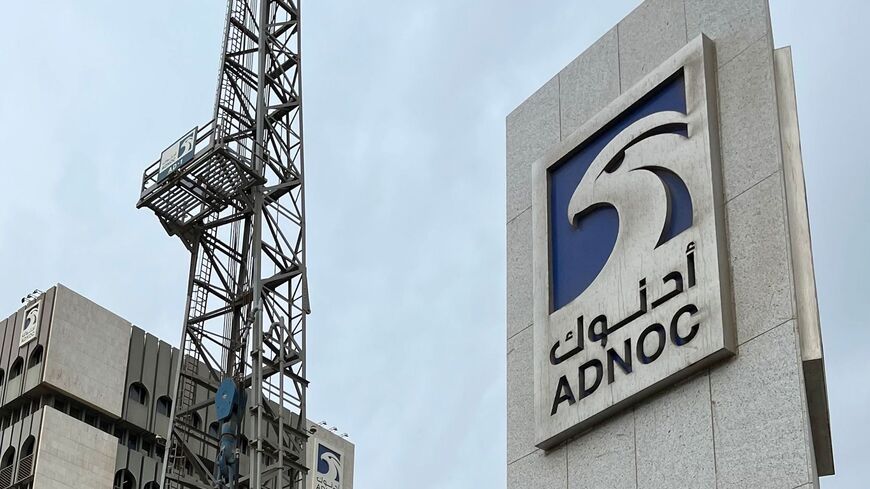Iran needs drastic reforms to mitigate brain drain's impact on economy, tech sector
Al-Monitor Pro Members
Dr. Bijan Khajehpour
Managing Partner, Eurasian Nexus Partners, Vienna, Austria
July 5, 2023
Deteriorating socioeconomic conditions and the absence of a functioning ecosystem for innovation and entrepreneurship are compelling many educated Iranians to migrate, depriving the domestic economy of the needed talent pool. Though on average Iran still has plenty of educated human resources, a continuation of the negative conditions will weaken the essence of the economy and shift the impetus of Iran’s educated elite to other countries, especially the United Arab Emirates. This trend will contribute to the shift of entrepreneurial and technological balance of power in the region to the detriment of Iran.
- The Iranian economy has dealt with the phenomenon of brain drain for decades. The drivers of migration have been different in nature: War in the 1980s, meager socioeconomic conditions, disrespect for basic human rights, lack of social and political freedoms, and discrimination against minorities among others have all been reasons for migration. Top destinations have been North America, Europe, Australia and Dubai.
- Interestingly, even though in 1997 the election of the moderate President Mohammad Khatami generated a temporary brain gain through returning diaspora members, the same did not happen after the election of Hassan Rouhani in 2013 and the signing of the Iran nuclear deal in 2015, which means that the negative trend has continued unabated for the past 20 years.
- Most recently, the growing restrictions imposed by the arch-conservative networks around President Ebrahim Raisi and the socioeconomic fallout from the anti-regime protests are compelling many Iranians to consider leaving the country.
- A study by the think tank Ravand Institute quantifies the migration of professionals and states that thousands of medicals doctors, hundreds of university professors and a sizable number of engineers are migrating annually. Sociologist Amanollah Gharaei Moghadam believes that the migration of the elite has irreparable consequences for Iran.
- Though brain drain has gone through different phases in the post-revolutionary decades, it is valid to argue that it has now reached a new stage as the country is witnessing what experts describe as “collective migration of the scientific elite.” One additional reason is the fact that a number of countries have created programs to attract startups, scientists and entrepreneurs. According to Ruhollah Dehghani, head of the state-owned Academic Center for Education, Culture and Research, foreign states — “especially neighboring and Arab countries" — are extending incentives to Iranian startups to migrate.
- One analysis concludes: “If in the past the issue of emigrating abroad was reserved for academics and scientific elites, recently this phenomenon has reached domestic investors, startup entrepreneurs, as well as technology and communication specialists. On the other hand, after the launch of Dubai Internet City and Dubai Silicon Oasis, the UAE now issues golden visas for IT professionals and entrepreneurs.”
- One entrepreneur who talked to Al-Monitor on condition of anonymity explained: “The desire to migrate was aggravated when internet restrictions and other pressures were applied, signaling that for the government the activities of startups do not have a high priority compared to security concerns.”
- Another entrepreneur complained about legal and political uncertainties, lack of legal protections for patents and innovative ideas, the threat of co-option in governmental and semi-state structures, as well as facing the limitations caused by external sanctions.
- The above references indicate that the deficiencies of the startup ecosystem in Iran, especially restrictions on internet access as well as social restrictions, have compelled a growing number of young and educated entrepreneurs to leave the country.
- According to sociologist Ali Tohmak, in studying the reasons for migration one needs to distinguish between the generations. He argues that for many middle-aged and middle-class Iranians, migration is a path to securing a better future for their children. However, for the younger generation, digital freedom and access to technology are important, hence the drive to relocate to countries where better startup ecosystems exist.
- Academic studies have concluded that factors such as disconnection from global trends, lack of needed investments, deep-rooted corruption and political repression cause migration. Iran suffers from all of the above and also has a government that shows disrespect toward its educated and successful elite.
Scenario 1: Iran attracts experts from other countries
The inability to compel the country’s own professionals to stay may compel the Islamic Republic to resort to attracting professionals from neighboring countries such as Pakistan and Afghanistan. Though there already are many Afghan immigrants, Tehran has not tried to attract educated and skilled Afghans into Iran in order to fill the gap that is created in the domestic talent pool.
From Tehran’s perspective, there is precedence — as in the 1980s, Iran attracted many medical doctors from India to provide the market with the needed expertise. Based on its psychology, Tehran will initially resist admitting that it will require foreign experts, especially as unemployment, especially youth unemployment, remains high. But if the current trend continues, the lack of expertise will be more evident and there will be a need to revisit policies.
Scenario 2: Medium-term brain gain
Interestingly, President Raisi has mentioned the desire to attract the Iranian diaspora to work and invest in Iran a number of times. In 2021, the Iranian Majles (the Islamic Consultative Assembly) also debated the topic of brain drain and allocated some resources to attract Iranians from abroad. Nonetheless, the 2022 social protests not only generated a larger resolve among diverse social classes to leave the country, but they also changed the set of priorities in the political establishment.
At the current juncture, there is no tangible initiative to attract members of the diaspora, especially entrepreneurs who are engaged in successful projects abroad. An improvement of socioeconomic realities and greater stability and improvement of the business ecosystem could encourage some to return. However, the economy continues to suffer as a result of sanctions, mismanagement, corruption and poor governance, and there is little hope for a better outlook. Even if President Raisi manages to introduce some of the needed reforms against all odds, the attitude of many diaspora members will be to wait and see whether the change is sustainable within the country’s political realities.
The most likely scenario is that the acceleration of brain drain will continue and a growing number of educated Iranians will look for opportunities to reside abroad. In the case of innovative startups, there will be more and more programs by potential target countries to attract Iranian scientists and entrepreneurs. The best scenario that the Raisi administration can hope for is a slowing down of the migration patterns of young talent. To achieve that, the government needs to relax some of the social and cultural policies and liberalize personal and civic freedoms. But that would clash with his administration’s hard-line views. Arresting a large number of Iranian dual nationals has also been used as a tool to intimidate the Iranian diaspora, hence further limiting the space for leading diaspora members to return.
As such, the Iranian economy will suffer the high cost of migration and brain drain both in the field of loss of human capital and talent, as well as loss of credibility as a legitimate state.
Bijan Khajehpour is the managing partner at Eurasian Nexus Partners - eunepa.com - a Vienna-based international consulting firm. He also sits on the board of the Europe Middle East Research Group. He is considered an expert on geopolitics of energy and the Iranian economy and energy sector.
We're glad you're interested in this memo.
Memos are one of several features available only to PRO Expert members. Become a member to read the full memos and get access to all exclusive PRO content.

Already a Member? Sign in
The Middle East's Best Newsletters
Join over 50,000 readers who access our journalists dedicated newsletters, covering the top political, security, business and tech issues across the region each week.
Delivered straight to your inbox.
Free
What's included:
Free newsletters available:
- The Takeaway & Week in Review
- Middle East Minute (AM)
- Daily Briefing (PM)
- Business & Tech Briefing
- Security Briefing
- Gulf Briefing
- Israel Briefing
- Palestine Briefing
- Turkey Briefing
- Iraq Briefing
Premium Membership
Join the Middle East's most notable experts for premium memos, trend reports, live video Q&A, and intimate in-person events, each detailing exclusive insights on business and geopolitical trends shaping the region.
$25.00 / month
billed annually
$31.00 / month
billed monthly
What's included:
Memos - premium analytical writing: actionable insights on markets and geopolitics.
Live Video Q&A - Hear from our top journalists and regional experts.
Special Events - Intimate in-person events with business & political VIPs.
Trend Reports - Deep dive analysis on market updates.
We also offer team plans. Please send an email to pro.support@al-monitor.com and we'll onboard your team.
Already a Member? Sign in

